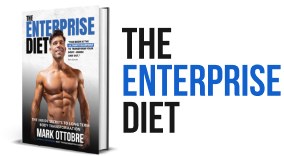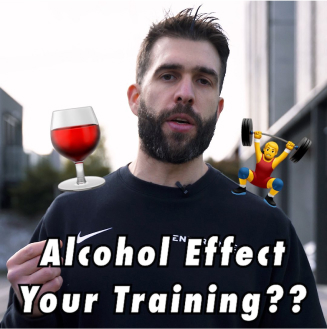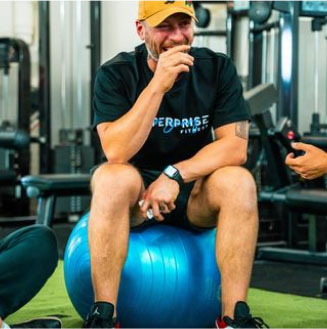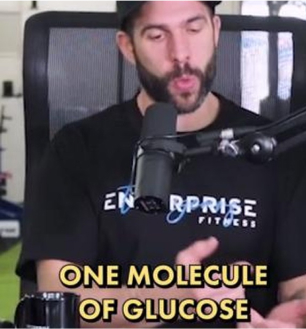With Sally Fallon, co-founder and president of the Weston A Price organisation, author of Nourishing Traditions and Eat Fat, Lose Fat
Download the full audio here: Truth About Raw Milk & Butter
Right click and select save link as to download to your computer. (Scroll down for Transcription)
Download direct: http://maximusmark.com/media/westonprice.mp3
Note: If you are using FireFox web browser, you may experience problems downloading… This is out of our control. Try using Safari of Google Chrome for hassle free downloading
Download from iTunes or search Maximus Mark on iTunes
The following is a transcription taken from an interview with Sally Fallon and Maximus Mark Ottobre on Weston Price, the wonders of raw milk and the benefits of butter.
Due to the nature of transcriptions we cannot guarantee accuracy, spelling or grammar. We think we’re doing pretty well to bring you both audio interviews and transcriptions with world leading authority on health and fitness free of charge. If you’re able to edit transcriptions free of charge, we would love to hear from you.
This podcast is proudly brought to you by maximusmark.com and Enterprise Fitness. Search www.maximusmark.com/radio for more great podcasts just like this one or search iTunes, Maximus Mark.
 Mark: Hey folks, it’s Maximus Mark and welcome to the show that punches you in the face with information but in a good way, it’s Maximus Mark Radio.
Mark: Hey folks, it’s Maximus Mark and welcome to the show that punches you in the face with information but in a good way, it’s Maximus Mark Radio.
Today’s guest is what we would call nutrition royalty. She is the co-founder and president of the Weston A. Price Organization. She is the author of “Nourishing Traditions”, “Eat Fat, Lose Fat”, and has tons of articles published at www.westonaprice.org. You can find articles on anything from raw milk, raw honey, cheese, Vitamin A, what to eat when you’re pregnant, plus a whole bunch of other topics. The website is a gift and I know I spend many hours researching on the Weston A. Price website when I need to look something up. So, it is an absolute pleasure to welcome to the show, Sally Fallon.
Welcome to the show, Sally.
Sally: Thank you. Thanks for having me.
Mark: Absolute pleasure. We all have been following Weston A. Price for such a long time since I got into nutrition, so, love to get the listeners and catch them up in a speed, if this is kind of the first time hearing about Weston A. Price. But before we get into that, how did you become one of the world’s shining lights in health and nutrition today?
Sally: I sort of almost feel like I’ve got dragged into it. It was just a result of my own personal journey where two things came together, first of all, is my love of cooking and my devotion to really delicious high fat, high cholesterol foods which I love and love to cook and then reading Dr. Price’s book “Nutrition and Physical Degeneration”, that happened in the early 1970’s. It’s a life changing book and showed that these are the various foods that kept people healthy for generations. So, I raised my family this way and I raised my kids with these types of foods, they were superbly healthy. When my youngest was in school full time, I turned my attention to writing the book “Nourishing Traditions”, and when that was through, we felt there was a need for an organization to keep looking at sciences that came through to educate the people on the principles of healthy diet. That’s when we set up Weston A. Price Foundation.
Mark: Who was Weston A. Price?
Sally: He was actually a dentist in the 1920’s and 1930’s. He travelled throughout the world looking in healthy populations in order to answer the question what is the healthy diet. He mainly looked at people’s teeth and for him the sign of good health was the complete absence of cavities and absence of dental deformity that means no crown or crooked teeth, and that told him that the population on the whole was a healthy population. He took photographs and wrote up his findings in this book “Nutrition and Physical Degeneration” which has been a very influential book for many people.
 The Master Piece; Nutrition and Physical Degeneration
The Master Piece; Nutrition and Physical Degeneration
Mark: Mainstream nutrition don’t really like the work of Weston A. Price in a lot of ways because it kind of really disproves a lot of main-stream non-sense…eg. Have 11 servings of grains a day. Can you speak on that a little bit?
Sally: Yes, absolutely. What Dr. Price found was very different from what we’ve been told of the healthy diet today. Our healthy diet today is supposed to be based on all of these carbohydrates, mostly grains, like white flower. There were cultures that Dr. Price studied, looked at, that had grains in their diet but these were whole grains and in addition to that, these were grains that were prepared very carefully by soaking or souring process, or in the case of people who eat bread, the bread was sourdough bread which is a kind of fermentation. Because grains have a lot of anti-nutrients and even irritants in them and with as we’re finding out today with all the celiac disease. Proper preparation takes care of these components.
Mark: Could you also argue that grains back in then, I guess, 1930’s and 40’s was a very different organism to what it is today?
Sally: Yes, that’s another point. I also make that with the celiac disease. Is it the gluten that’s causing the problem or is it all hormones and pesticides and fumigants and all these other components that they put on grains. The typical grain gets 10 chemicals applied to it from seed to final product.
 The book Nutrition and Physical Degeneration is filled with photos just like this comparing dental health of cultures that ate a healthy diet and those that didn’t.
The book Nutrition and Physical Degeneration is filled with photos just like this comparing dental health of cultures that ate a healthy diet and those that didn’t.
Mark: Is that worldwide or is that just in the US mainly?
Sally: That I don’t know. It’s certainly in the US.
Mark: A lot of people, I guess again, must be hearing of Weston A. price Organization for the first time, what does it stand for? What is Weston A. Price Organization all about?
Sally: We are a non-profit, nutrition education foundation, dedicated to providing accurate information about diet and health. We have no ties with the industry or with government. We focus in particular on educating people about eating healthy fats and those are fats are like butter, lard, tallow, coconut oils and the traditional fats that people use.
One of the statements in our mission statement is the scientific validation of traditional food ways. There’s so much pro and con in the scientific literature you can support almost any position drawing on scientific studies. But we feel that if we can show that the study validates the food ways then we ought to take that study pretty seriously.
 The man, the myth, the legend… Weston Price!
The man, the myth, the legend… Weston Price!
Mark: Right. You guys just had a Weston A. Price convention and I just saw on YouTube the “Junk Food Man” song…
Sally: The children did the junk food man song. Yes, we have a 4-day conference once a year and we just finished our conference. I consider it the premier nutrition conference of really international in the world and we have a children’s program, we feature really delicious meals, and a varied agenda people can hear highly detailed scientific talks or go to cooking classes or anything in between.
Mark: That’s fantastic. I heard you on another radio station a couple of days ago campaigning about raw milk and debating someone on raw milk. That’s something I guess you are heavily involved in right now. Before getting to the raw milk issue, what do you think are the major problems with the world’s food supply and why is something like raw milk is illegal?
Sally: Food supply has been industrialized and processed, overly processed. By industrializing, let’s start with the animals. The animals have been put inside, no green grass and no sunlight so the three most important vitamins according to Dr. Price had disappeared in the food supply, that’s Vitamin A, D and K. These vitamins are necessary for utilizing the minerals and the other vitamins in foods, so without them, the minerals and the other vitamins pretty much go to waste. So that’s one thing that’s happened. It’s just horrendous what we do to the food after that, the oil processing, the flour processing, sweetener processing and food flavorings and all of these are put together to make junk food.
Mark: So I really want to reinforce the significance of what you’ve just said. The vitamins, make sure we get this right, Vitamins, A, K, D and E is that correct? And they are synergistic vitamins for the absorption of all the other vitamins, is that right?
Sally: That’s A, D and K. Vitamin E is important too but that’s a fat soluble vitamin. But the three that Dr. Price looked at and found wherein such high levels in traditional diets were A, D and K and where do we get these vitamins? Well, we get them from certain seafood’s, not with skins and fillets, we get them from shellfish, fish eggs, fish liver, fish liver oils. In the land animals, we get it from butter, cream, egg yolks, organ meats and meat fats of animals raised outside on pasture and sunlight. These are the very foods that we’re told we shouldn’t eat. They’ve been demonized.
Mark: Why is selling like raw milk, which is a super food, so to speak, why selling something like that illegal?
Sally: Well, first of all I need to stress, at least in the United States, it’s not illegal to purchase, possess or consume raw milk. It’s only illegal in some states to sell it and that tells you right there that laws against raw milk are for economic reasons. They use health and safety as an excuse but really these laws are there to protect the dairy industry and to prevent the dairy industry from having to compete with farmers selling directly and getting much higher prices for their milk.
Mark: Right. Okay. So it’s another case of food industry becoming government and making its own rules.
Sally: Yes, exactly. They’re very tight, the FDA and Agriculture Department and the dairy industry. You know, fewer and fewer people can actually consume pasteurized and ultra pasteurized milk in the market, for this milk it’s going down 1% per year… it has for 30 years. Eventually, there isn’t going to be anyone consuming commercial/fluid milk, they just won’t be able to. A lot of people have found that they can’t consume pasteurized milk but they do fine on raw milk.
Mark: You probably get this question a lot, and probably debated this question a lot, but shouldn’t we fear raw milk? Isn’t that dangerous… How do you answer that question?
Sally: It depends on where it comes from. Raw milk from a confinement dairy would be dangerous, it would be quite risky. Raw milk from a small farm or the cows are on pasture, producing clean conditions, this is an inherently safe food because there are components in the raw milk that kill pathogens and that also supports the immune system.
Mark: What about the E. coli? That’s another concern that’s always been raised.
Sally: Well, yes. When animals are pasture fed, the E. coli goes way down or even disappears.
Mark: So when we drink it, it’s not even in the milk?
Sally: Right, and the milk kills the pathogens. Milk that’s cleanly made you can test it for pathogens and they’re not there.
Mark: Right. So let’s shift into training questions on nutrition. First question is, what’s your thought on things like protein powders?
Sally: We are very much opposed to protein powders. They can be quite dangerous. The problem with too much protein is it rapidly depletes Vitamin A and when you deplete Vitamin A, you are prone to everything from immune disorders to cancer, to chronic fatigue, and all sorts of horrendous health problems that doctors don’t know what to do about. Eating lean meats, egg whites without the yolk, skimmed milk or protein powders, all of these practices have the danger of depleting your Vitamin A, and probably protein powder’s the most. If you’re taking a protein powder, you can get up to 30 to 40% of your diet as protein and you don’t find that in any traditional diet. You find 20% that’s the maximum.
Mark: And how much would fat be?
Sally: The fat? The fat vary from region to region, in the Arctic it’s up to 80% of calories… 80% fat, 20% protein. In some parts of Africa, the fat is about 30% of calories and the remainder is carbohydrates. Don’t forget the body can take carbohydrates and turn them into fats, that’s what it does with carbohydrates, but the key thing is to get the fat soluble vitamins one way or the other.
Mark: So, another thing that I guess always gets raised is I guess ketosis and diabetic-ketogenic-acidosis when you start promoting high fat diet. Are you able to touch on ketosis and just explain to the listeners why perhaps it’s not such a terrible thing?
Sally: Ketosis is not the same as ketogenic acidosis which is a very severe condition that happens with diabetics, they’re two different things. All I can say is that Price found no problems with the Eskimo population that was eating this way. One way or another, the body adjusts to it. And some believe that the ketones are better fuel for our brain than glucose.
Mark: I guess the insulin and glucagon response, it stops ketone accumulating in the liver as well. So it doesn’t become a problem.
Two questions from Will Levi, in Melbourne, he asked, “Would raw milk make a good post-workout recovery drink or is the fat content too high? Or is it optimal due to the insulin response from dairy?”
Sally: I think it would make an excellent post-workout drink and I would add some extra cream to it. That’s what the athletes did in Switzerland and I would not be afraid at all of the high fat to the diet for the athletes. That’s what Dr. Price found with the athletes in Switzerland. They drink bowls of pure cream during their athletic contest. There have been studies showing that you have a lot more stamina and strength with the high fat diet compared to a high carbohydrate diet.
Mark: Do they have the bowls of cream with anything?
Sally: This is what Dr. Price described; during the athletic event they drank bowls of pure cream. So it wasn’t the carbohydrate loading going on in here.
Mark: Yeah, right, definitely.
Is there any link with information or autoimmune issues even with raw milk?
Sally: Raw milk, because of it built the immune system would help with immune issues. By the way, saturated fat is very supportive of the immune system so you want the cream or the butterfat in the milk.
Mark: Right. Of all the cultures that Weston A. Price studied, which one do you… or top 2… which one are you most taken by? Is there a particular culture that I guess you model more from than others?
Sally: Well, I’m very interested in the Swiss culture, that was the first one that he visited because their chief foods were raw milk and sourdough rye bread and they did have some meat and soups, but most calories were raw milk and the bread. This is very interesting because you have the Paleo dieters out there saying that the reason we have so many health problems today is we’re eating these two foods that are new to the human species, dairy foods and grains, and yet here’s a superbly healthy population that lived mainly on dairy foods and grains.
So our message is you don’t have to get these foods out of the diet, you don’t have to eliminate them, you just need to make sure that they’re the right kind of dairy foods and the right kind of grains. I think that’s good news to people. We really don’t want to be telling people they can’t have these or they can’t have that. Our philosophy is here’s how, here’s how to eat fat, here’s how to eat salt, here’s how to eat sweet things, here’s how to eat grains. So you can be inclusive rather than exclusive.
Mark: Right. So I guess to put a summary on the grain issue, you guys are not against grains but the mainstream grains, like the grains you buy from the supermarket is a ‘no’ but you would need to source better grains and then I guess soak them…
Sally: And prepare them properly.
Mark: So you prepare them yourself and make sure they’re not genetically modified or any of that type of thing.
Sally: Well they need to be soaked or fermented or made into sourdough.
Mark: Let’s move to butter, fat, Vitamin A questions. I heard you put a stick of butter in your oatmeal in the morning…
Sally: That’s quite not right, its a half a stick. That’s four tablespoons.
Mark: Yes, I actually make a shake after training that’s consist of raw eggs, raw milk, unheated honey and raw butter. People think I’m absolutely crazy for putting butter in my post-workout shakes and I used to explain that the high butter and high fat is mostly medium and short-chained triglycerides plus Vitamin A, D and K that’s in butter. I guess in your own words, I love to hear, why is butter such a super food?
Sally: Well, butter is just the perfect fat as you say if it’s from grass-fed cow that has A, D, E and K. It’s a terrific source of trace minerals. It has CLA which helps you build muscle. It has a great balance of fatty acids, actually only about 11% are the short and medium-chained fatty acid but it’s got arachidonic acid which is critical for neurological function. It has a little Omega-3. It just has a plethora of fatty acids and it has lecithin which helps you use cholesterol properly. It has single lipids which help digestion. You couldn’t design a better fat. It is just crazy that we have demonized this healthy fat.
 Butter is a superfood… Move over Goji berries!!
Butter is a superfood… Move over Goji berries!!
Mark: I guess one of the misconceptions is that if I eat butter I’m going to get fat. What’s wrong with that statement?
Sally: Butter supports thyroid function big time, the combination of Vitamin A and iodine so a lot of times when people switch to butter they lose weight. I often say, you know its what you put that butter on makes you gain weight. So if you adopt this diet, or eating a lot of butter, you probably going to have to cut back on the carbohydrates.
Mark: I think I remember reading Weston A. Price correlated the health of different cultures to the actual nutritious value of the butter. Is that right?
Sally: Yes, he was always testing butter from different parts of the world because he found a huge variation in the Vitamin A and Vitamin D content depending on how much sunlight there was and how much green grass there was. This was a terrible thing that’s happened with industrial agriculture culture. Unless you buy directly from a grass-based farmer, you got to be getting butter from confinement cows, which is not a good source of A and D.
Mark: Yeah, it changes the structure of the butter. Is butter one thing that you pretty much tell everyone to start to include in their diet?
Sally: Oh yes, absolutely. If you’re very intolerant of dairy, you can use ghee.
Mark: And most of the time, people use if they have intolerance to dairy butter’s still okay because there are no protein strands in butter. Is that right?
Sally: Well, there’s a little bit of protein in butter, little bit of milk solids in butter, but most people tolerate butter very well.
Mark: Yes, fantastic. Just want to switch now to I guess raw food. I had both Aajonus Vonderplanitz and Randy Roach on the show a while back. They’re both raw food and I guess raw meat eaters. From previous podcast, I heard you say you’re a little concerned about the raw meat phase or the raw meat diet?
Sally: Well, all traditional cultures have some raw animal foods in the diet. So I do think we need some raw animal foods included in the diet. This can just be raw milk, raw cheese, raw oysters or raw meat.
I tell you that raw chicken or raw pork make me a little queasy, I wouldn’t recommend that. I think you eat that at your own risk. Raw beef and lamb are great but what I’m concerned about is the all-raw philosophy because all traditional cultures cooked. Usually what they cooked was the plant foods; and most plant foods contain toxins that are neutralized by cooking. The grains definitely need to be cooked. It’s fine to have cooked meat and make soups and things like that. Potatoes definitely should be cooked; they contain a toxin when raw. Once again, people put themselves on these weird extreme diets that kind of separate them from the rest of mankind and don’t necessarily do them any good.
Mark: Yeah right. That’s a really good way to put it.
If someone wants to get as strong as humanly possible, what would you advise them to eat?
Sally: Gosh… I’m not into bodybuilding… However I would definitely have foods rich in Vitamin D, because Vitamin D is necessary for muscle firmness and integrity. So, lots of shellfish, lots of butter and cream, lard… I would cook in lard which is a rich source of Vitamin D.
Mark: What’s the difference between lard and butter?
Sally: Lard is the fat of pigs and it’s a very rich source of Vitamin D. I would definitely include organ meats. Things like liver at least a couple times a week. A number of studies on animals have shown that animals that ate liver had lot more stamina.
Mark: Yeah, right. That’s good.
What’s your thought on food intolerance testing with things like broccoli and beef are coming up as intolerant foods?
Sally: I’m a little skeptical of food intolerance testing because you get so many false positives. There’s a “Pulse Test” that’s described in my book “Nourishing Traditions” where if you’re suspicious of a food that’s causing you problem, you go off that food for 4 to 5 days and then you just eat a serving of that food by itself, testing your pulse before and after. If pulse shoots up, that’s a sign that you do have a problem with that food. I think that’s a much better way of doing it.
Mark: Well, that’s a really easy way to do it. How did you discover that one?
Sally: There was a book written about it. I think it’s called the “Pulse Test”, way back in the 70’s or 80’s.
Mark: Right. Is that a signal that your body’s under stress that’s why…
Sally: Right, your pulse goes up.
Mark: That’s a really, really good tip.
How does one get involved and become a member of the Weston A. Price Organization?
Sally: Just go to www.westonaprice.org and there’s a button there, “Join Now”, and you can join online. Members receive our quarterly journal and all of our informational alerts. We have a lot of members in Australia and quite a few local chapters in Australia.
Mark: Excellent. Is there a cost or fee to join or is it free?
Sally: Yeah, for overseas it’s $50 and that just pays for the extra postage, in US it’s $40, and for students and seniors $25 and we’ll honor that student and senior rate for overseas people.
Mark: Excellent. So the best place I guess to learn more about you is www.westonaprice.org?
Sally: Yes, www.westonaprice.org.
Mark: And your books ““Nourishing Traditions” and “Eat Fat, Lose Fat can be purchased on Amazon?
Sally: “Eat Fat, Lose Fat” you can get from Amazon, “Nourishing Traditions” you can as well, but I would also invite you to visit my website www.newtrendspublishing.com which has not only “Nourishing Traditions” but the other books that I published and my two DVDs. I have a DVD of my five and a half hour seminar on traditional diet and the DVD called “The Oiling of America” which is about cholesterol and saturated fats and the cholesterol theory of heart disease.
Mark: Excellent. That sounds really interesting.
What’s on the cards for the future?
Sally: I just keep on, keeping on, we’re really pushing for universal access to raw milk, just educating as many people as we can, that’s Dr. Price’s dying words, “You teach, you teach, you teach.”
Mark: At this point of the game, do you think raw milk will become a commercially available food?
Sally: Yes I do. I think eventually this movement to get raw milk will be irresistible.
Mark: Did you form a consumer demand point of view or you just think?
Sally: A consumer demand’s point of view and the children getting raw milk a day will grow up to be healthy and in charge, it’s what we call the aristocracy of the healthy and if the changes aren’t made now they’ll be made in the next generation.
Mark: Excellent. Any final thoughts or things to sum up?
Sally: If you’re new to all these ideas go to our website and click on “Beginner’s Tour”. The website is just enormous there’s so much information, the Beginner’s Tour will take you through some important articles.
Mark: Fantastic. Well, really want to thank you for taking your time out today, coming on and answering these questions. Thank you very much and we wish you all the best with your campaign for raw milk. You’re doing the world a great deal of good, much appreciated.
Sally: Thank you so much. It’s a pleasure to be in your show.
Mark: Thank you Sally. Bye, have a good day.
Hey folk it’s Maximus Mark. Hope you guys enjoyed that interview just a reminder, you guys can find more great podcasts just like this one by going to www.maximusmark.com/radio or searching Maximus Mark on iTunes.
Remember we got podcasts on Jonny Bowden, Randy Roach, Mark Schauss talking about toxins. I did an interview talking about a lot of hot topics, Aajonus Vonderplantiz on raw food, Lierre Keith about The Vegetarian Myth, Dr. Art De Vany talking about the caveman’s diet as well as many, many more fantastic guests. Their all at maximusmark.com/radio and again they’re on iTunes as well.
Do feel free to share this with your friends on Facebook and remember to Tweet them as well. I’ll speak to you guys next time. Train hard, supplement smart and eat well.
Maximus Mark








